When laws don’t apply
Wednesday, 29.06.2011.
15:28

When laws don’t apply According to Insider’s research, reports disclosing the money political parties in Serbia raise and spend are reduced to counterfeit reports since control mechanisms do not exist. Even though the citizens of Serbia pay for years political parties’ activities through budget, apparently, for politicians this is not enough, so the public secret appears that several businessmen finance all the parties. Consequences of the secret party financing are a heavy burden to all the citizens of Serbia. Almost every government in Serbia has suggested at least a few laws, which were later rectified by the Assembly, beneficial foremost to individuals or interest groups. At the end, these have had a high price for the citizens of Serbia, such in cases when the representatives of the government allowed a monopoly to individuals hence all the citizens were forced to, for instance, pay the most expensive prices for the basic groceries. In addition, decades have passed without building of new schools, hospitals and bridges since it is often the case the budget is left inhibited for millions of Euros due to privatization and sales of assets belonging to all the citizens, set-up tenders or simple like gift-giving to businessmen who have funded the parties. In this game, all means necessary are used, the players are protective of each other, and all are silent in regards the misusages. The citizens of Serbia through the budget, allocate monthly around half a million euros for the activities of the parliament parties, under assumption the parties will operate in the citizens’, that is, in the interest of the state. However, as the parties factually control themselves, likelihood is that businessmen and various interest groups finance parties or individuals within the parties and hence later on so influence laws and decisions by the Assembly. Insider’s analysis shows a tacit agreement binds all the parties in Serbia that for years handle money from unknown sources, while at the same time, they break the law they have rectified themselves. A mutual protection in everything is assumed. Once a party gets elected into the parliament, a question of funding is solved for that particular party. Namely, activities of the parliament parties are provisioned monthly by 0, 15 from the budget funds, which in this year alone represents around six million euros. In addition, the parties’ obtain funds through membership fees and also, according to the valid law, the same amount as received from the budget could be obtained through donations. Party financing, according to the law, should be controlled for by the Assembly Board for finances- where presidents of those same parties have a seat. This system, wherein parties actually control themselves, serves well to the domestic businessmen, who by funding the parties or certain politicians hence influence their work. As it turns out, certain businessmen in Serbia fund almost all parliament parties so that the ruling majority could assure rectification of legislature which could bring the businessmen even more money, while the opposition remains quiet in exchange of not having its business activities questioned publicly. These businessmen so are becoming even wealthier, hence they could allocate more funds to the parties and at the same time, influence their work even more. Dragomir Jankovic, European Economic Institute: These people are playing more than one game at the time, they wouldn’t be tycoons and wealthy if they didn’t have more than one option, so they always have their own people within the opposition and ruling parties too. They give more to the ruling parties. They keep the opposition as a backup option, and once the opposition rises to power, the party that becomes the ruling one, it already takes over certain responsibilities towards the people who funded it. Receipts showing donations in cash between a businessman and politician do not exist. Such money is not paid up through an account hence it is difficult to trace who pays to whom. However, a fact pointing out to the associations of domestic businessmen and parties is that since October 5th, not one of the governments did investigate a question of sources of property acquired during the 1990’s in the time of wars and sanctions. Instead, the businessmen have increased their capital, working along the laws rectified in their own interests but at the expense of the state budget. In privatization processes, aided by the state institutions which eliminated competition, they have bought enterprises at a low rate and so acquired attractive lots. In all these years, authorized institutions are strikingly silent regarding market monopoly- causing for instance, that the citizens of Serbia have to pay a lot more for basic groceries than it is the case within other European countries. Funds invested in parties and politicians have paid off considerably, hence the domestic businessmen have become richer, exercising at the same time more influence on the funded parties, even on government formations. Verica Barac, Anti-corruption council: These are all a part of the joint business adventure between political parties and tycoons, with great benefits for all involved. The tycoons generously fund political parties, they can fund everything they desire, elections are in fact, bought off. The major businessmen from the Slobodan Milosevic’s time but also of the present are Miroslav Miskovic, Milan Beko, Danko Djunic, Predrag Rankovic Peconi, Stanko Subotic Cane, Vuk Hamovic, Vojin Lazarevic, Zoran Drakulic and Bogoljub Karic. At the same time, they are in public assumed to be the main financiers of all parties. Considering there is a conspiracy of silence regarding the subject of political parties’ financing, it is no wonder none from the above mention individuals is willing to discuss the issue whether the funds were given on a voluntarily basis or they were perhaps forced to do so, to pay racketeering in order to stay in their respective business. As a rule, these businessmen stay out of media, hence they also refused interviews for Insider. As well, they refused to answer questions we have sent them in a written form. In their rare public statements regarding question on parties’ financing, they eventually claimed to have helped the opposition during the 1990’s. At the same time, the representatives of all parties mostly claim they do not take funds from the domestic businessmen but do work in the best interests of citizens. Bozidar Djelic, Democratic Party, Minister of Finances in 2001-2004: I can say, as far as the party I belong to, it was never under an influence of any major businessman. Democratic Party is a party with ten of thousands members who regularly pay membership fees, the party gets funded from the budget, by 2003 Law, and that’s enough for this party to function. Velimir Ilic, New Serbia: We have had offers, a lot of them, but I was decidedly against and the party too was against. Even more so, some tycoons have contacted us, the major ones, saying: ”Hey, we support everything, we have a system of how to do it, come and we can make a deal”. B92: What it means “We support everything”? Velimir Ilic, New Serbia: But then you also have to support them, and then I refused. I had a conversation, once Miskovic called me. He said:” Hey, let’s make a deal”. I said: “Thank you but we don’t need anything”. And that’s how we stayed to rely on ourselves. Zoran Krasic, Serbian Radical Party: Those who have a lot of money, who wish to maintain their power, to form also the political will of citizens, and also want in power those politicians with whom they can manipulate, those politicians who are their dependants. We do not fit in that scenario and that, allegedly, is our problem. B92: OK, but Mr. Tomislav Nikolic acknowledged Miskovic and Beko have helped the campaign by the Radicals in 2008, but that cannot be found in the reports. Zoran Krasic: Well, maybe they helped privately. B92: You party is being associated with… Nenad Milic, Liberal Democratic Party: Our party is not associated… B92: With Milan Beko. Nenad Milic: As usual, our political opponents try to compromise us even for some other things, but our party is in no way connected with Milan Beko. B92: Is Peconi funding your party? Branko Ruzic, Socialist Party of Serbia: I’ve said that before. B92: No? Branko Ruzic: No. Dragan Sormaz, former official of Democratic Party of Serbia: When there was enough power, there was money too. And from which source? I was never involved in it. B92: But have you heard Miskovic funded Democratic Party of Serbia? Dragan Sormaz: I’ve heard it was him, someone who helps Democratic Party of Serbia. But in which way, I’ m telling you again, I don’t know. B92: And how would Democratic Party of Serbia repay him? Dragan Sormaz: That I really don’t know. Also interesting is that G17 plus, a party which has in its official report stated that in 2004, “Jugohemija” owned by Miroslav Miskovic had paid 225 000 dinars for the purposes of the party. However, after 2004, this company is not listed in the official report on financiers. The former president of G 17 plus, Miroljub Labus, did not want to discuss if Miroslav Miskovic had funded the party. The interview with Labus took place at Business Forum in Kopaonik. B92: G 17 plus is frequently associated, regarding this matter, with Miroslav Miskovic. Did he fund you party? Miroljub Labus, former president of G 17 plus: I would not want to discuss this at all. In 2006, I left politics, hence…. B92: What about before it? Miroljub Labus: I don’t want to talk about it… B92: So you think the citizens of Serbia should not have to know about…who funds… Miroljub Labus: I don’t want to talk about it, but you can always inquire with someone else. OK, thank you. According to Insider’s research, the political parties funding sources remain hidden and forbidden subject, nevertheless, certain parties decisions or even political appointments point out to the relationship, not always clearly visible, between funding source and parties. After the formation of Zoran Djindjic’s government, in February 2001, Nemanja Kolesar was appointed as a port parole. From 1999, Kolesar was employed in “Delta” company owned by Miroslav Miskovic, but ten moths later, he became chief of stuff to Djindjic’s office. In May 2003, he was appointed executive director to Agency for Deposit Insurance and the Bank Rehabilitation, Bankruptcy and Liquidation, managing bankruptcy in the four state banks, closed in the beginning of 2002. State Secretary to the office of the former minister of economy and regional development, Mladen Dinkic, is Vesna Arsic, who was, in 1996-2000, a deputy to director of “Delta Bank”. The association of Vesna Arsic and G 17 plus dates back to 2001, when Arsic became a deputy to then the governor Mladen Dinkic. After Dinkic was replaced from the position of National Bank governor, he got appointed, at the next government meeting, to the position of minister of finances, while Vesna Arsic was a state secretary to the office. For a short period of time, Arsic was out of the state services during the second government of Vojislav Kostunica, when she was a member of Executive Board of “Alfa Bank”. When Dinkic was appointed in the government by Mirko Cvetkovic, to the position of minister of economy and regional development, Vesna Arsic became state secretary to the ministry. A long time director of Republic Institute for health insurance was Svetlana Vukajlovic, previously director to “Delta Insurance”. In 2004, she became a director to Republic Institute for health insurance, at the suggestion of Tomica Milosavljevic, then the minister of health and official to G 17 plus. In the October last year, the Assembly appointed Vesna Besarevic as a council member to Commission for Protection of Competition. Besarevic is one of the endorsers of the study by the Faculty of Law, which claims “Delta maxi” is not a monopolist at the Serbian market. Based on FOIL accessed notes from the council meeting, wherein the board members interviewed candidates, not one of the parties’ representatives addressed conflict of interest question regarding Vesna Besarevic, considering she is working in the committee deciding on monopoly at the Serbian market. At the suggestion of Liberal Democratic Party, which is a party of the ruling coalition in Belgrade, Olivera Savovic was appointed as the city secretary for economy in June last year. She was a secretary of Serbia’s Securities Commission at the time of litigious privatization of “Knjaz Milos”, “Luka Beograd”, “C market” and “Novosti”, the companies bough by Miroslav Miskovic and Milan Beko. Before the Committee, Olivera Savovic was employed as one of the directors in Beko’s company “Dibek”. Also, as reported by Insider earlier, Milan Perovic, who was, at the time of litigation between “Luka Beograd” owned by Milan Beko and city of Belgrade, an official legal consultant to “Luka Beograd”, became, at the suggestion of Liberal Democratic Party, a president of Board to Belgrade Land Development Public Agency, which is in litigation with “Luka”. Perovic is a member of Democratic Party. At the suggestion of Liberal Democratic Party, Oliver Glisic was appointed as a member of the Belgrade city council. Glisic used to work in a law firm owned by his father, which represented “Luka Beograd”. Nenad Milic, Liberal Democratic Party: Your thesis, which you are trying to impose for the last hour, is totally ridiculous, that Liberal Democratic Party is repaying some tycoon by some people…by appointing his people, but you have found a case that came up from the state office, another one who is a lawyer representing people and not doing anything in that, and the third one whose father is also a lawyer and in all none of the three mentioned have ever done anything for Milan Beko, never! You don’t even have rumors… B92: So, you are saying this is a coincidence… Nenad Milic: You don’t even have a hint of rumors or suspicions, nothing of that kind and that’s a totally ridiculous thesis. OK, you will make a show out of it, but I don’t see what the purpose of it is. Does it really appear logical that we are taking money from Milan Beko, and then, as a repay, we hire on those meaningless job positions some people who are not even connected with him, according to you perhaps, and rumors… B92: What do you mean by “meaningless”, if a city secretary for economy… Nenad Milic: It’s meaningless from the aspect of association you are trying to impose. A relationship between domestic businessmen and politics is the most obvious in processes of law rectification or application within finances. According to our research, several laws, such as anti-money laundering law, tax law, laws on privatization both from the Milosevic’s time and the one rectified by the Zoran Djindjic government, hide mechanisms which allow tycoons to make money at the expense of the budget, all in accordance with regulations. For instance, laws on investment fond and competition protection have entered into force after privatization process ended, hence the state did not control money entering the country nor it did prevent monopoly formation. Josip Bogic was a head of the financial crime police department until 2006. Josip Bogic, head of the financial crime police department until 2006: Only now we came to see what the interests were, since during that time all privatizations, at least the major ones, were conducted and bought with dirty money. I believe such regulations were rectified because everything which was worth in Serbia was already sold and bought off. There is no other explanation. B92: Was this, actually, a favor to those who funded those parties? Josip Bogic: Probably so, I’m telling you again, for all those evidences are needed, to say- yes, there were evidence, because tomorrow someone can argue- how did you get the evidences, but if you think about it, then it’s not difficult to conclude what’s this all about. Parties have worked in the best interest of tycoons, and of their own but not in the interest of the citizens. Dragomir Jankovic, European Economic Institute: So, in this country, this question was never answered: Whose interest was, if anyone’s, to rectify Law on privatization? Why and in whose interest was not to rectify Law on investment funds, used the most in privatization? And who are the people who participated in this? That’s the crucial question. In January 2009, after rectification of bill regarding changes in Law on Excise rates, the domestic businessmen influence on the state legislature became even more transparent. An amendment regulating the least expensive cigarettes to raise in price the least, which benefited a tobacco factory “Monus”, associated with Predrag Rankovic Peconi, was suggested by Socialist Party of Serbia. The amendment was voted for by the members of the parliament from several parties: Serbian Radical Party, Serbian Progressive Party, Democratic Party of Serbia, New Serbia, League of socio-democrats of Vojvodina and the minorities. After about a week of voting, the public found out that the representatives of “Monus” have visited some clubs in the Assembly. Still, according to statements from all the parties’ representatives who have voted for the Law, the forgather never happened. B92: Did you meet mister Rankovic’s associates? Branko Ruzic, Socialist party of Serbia: Not then. Not the mentioned people. B92: Did they come to your club, since they were in the Assembly? Branko Ruzic: No. Those mentioned people, I know some of them, as I naturally know a lot of people from both sides of the law. I was born in Belgrade, and that comes naturally. B92: No, I’m just asking if you have seen them, since they were coming to the Assembly. It turns out they haven’t meet anybody. Branko Ruzic: I think it’s a private and intimate issue and totally uninterested for the public who knows whom in private… B92: I’m not asking you about private life. Branko Ruzic: No…If you are asking me officially, no. An argument used by Socialist party of Serbia to justify the amendment is - more money in the budget for that year. However, according to the calculations by the then minister of finances, until 2012, due to the amendment, the budget would be short for around 2 billion dinars. That is why, several months later, the ruling majority changed the Law, adopting assessment of excise rates, as originally suggested by the government. Interestingly, the police White Book about organized crime in Serbia 2001, cites Predrag Rankovic Peconi as someone who has made money through smuggling oil and cigarettes; in addition, he was the main person for money laundering for the Surcin gang. Even though he was arrested during “Saber” action after the assassination of the Serbian Prime Minister Zoran Djindjic, he was not accused after October 5th. Democratic Party of Serbia, during “Saber” action, repeatedly called for his arrest, questioning his release from prison. Rankovic has developed his business during the Vojislav Kostunica government, which was supported by Socialist party of Serbia. Dragan Sormaz, former official of Democratic Party of Serbia: When we look upon the activities of the gentleman you mentioned, just take a look at the privatizations he had participated in. Those were all about production, a lot of workers, it’s business, it’s not just-so trade as some are doing it. I personally think he had a lot of courage to enter into this market, into some things and to fight with production. I think Serbia needs production and export. Is he successful in doing this or not…. B92: I’m inquiring about the attitude change of Democratic Party of Serbia towards him, since nothing has happened when you took the power, before that you called the government to arrest him, so does this imply he has started to finance the party, hence you… Dragan Sormaz: I really do not remember, Peconi I don’t remember. In public, Vojin Lazarevic is mentioned as one of the major financiers of Democratic Party of Serbia. Along with Vuk Hamovic, he was a co-owner of “IFT” company, involved in electric power trade and, after October 5th, involved in numerous businesses with EPS. In 2005, media reported that the co-owners of “IFT” company separated since Hamovic wasn’t approving Lazarevic’s excessive support of Democratic Party of Serbia and Vojislav Kostunica. Dragan Sormaz, former official of Democratic Party of Serbia: Again, about Hamovic I know nothing, but Vojin Lazarevic was present and around at the party’s various celebrations, around Democratic Party of Serbia after October 5th, I’ve seen him there with my own eyes, but I don’t know if he was giving money. Tomislav Nikolic is the first party official to acknowledge publicly that the domestic businessmen do finance parties. The admittance came only after he had left Serbian Radical Party. He then said that Miskovic and Beko helped the Serbian Radicals campaign for 2008 elections. Tomislav Nikolic, Serbian progressive party (Utisak nedelje, September 14th, 2008): This means I’ve talked with around ten people who…some paid for billboard, some for TV shows, we didn’t need money. Olja Beckovic: Were they Miskovic and Beko? Tomislav Nikolic: They were not the only ones. Olja Beckovic: And with whom are you having, except with Miskovic and Beko? Tomislav Nikolic: I talked with Miskovic and Beko, after the election, that was a polite conversation, they have done everything so Tadic would win the election. So Tadic could form a city government. And what have I done to them? Olja Beckovic: Like Seselj says, you broke down the party…and voted for SSP. Tomislav Nikolic: So, I have done the same for “MK komerc”, for Peconi, and for Milija Babovic. He should have given me a list of wealthy people. I should have that list, and I accept they all did something for Serbian radical party. Serbian Radical Party has never, and by no means facilitated rich men in Serbia to gain profit. We have never facilitated, by no means, a single rich man to gain an extra, new profit. Olja Beckovic: Then why they are doing it? Tomislav Nikolic: Who is doing what? Olja Beckovic: Why the rich men are giving you money if they don’t get anything in return? Tomislav Nikolic: And why, when they are giving it to all parties? Olja Beckovic: One of your representatives in the parliament says… Tomislav Nikolic: But all parties in Serbia are doing it. Olja Beckovic: Hence they expect something in return, I assume? Tomislav Nikolic: They can expect from us, and they can ask for from some from the government, and there’s the difference. The donations mentioned by Tomislav Nikolic are not reported by the Serbian Radical Party even though the Law on party financing entered into force in 2003, regulates all parties are obliged to report donations greater than six thousand dinars. Concealment is punishable and against the law, but none of the parties got charged until present. Serbian Progressed Party, formed by Nikolic, does not receive funds from the budget since it didn’t run for the elections. So, a question is: how the party managed to finance foundation of numerous boards within Serbia, or how it managed to organize performances and rallies in Belgrade and many other cities in Serbia? The party representatives refused an interview with Insider. In the official report, the party stated no firm had donated more than six thousand dinars, while 12 individuals donated around 3.9 million dinars. The donators included the party officials and Tomislav Nikolic’s family, his wife and sons. Nikolic’s wife Dragica, stated the report, who is unemployed, donated 374 000 dinars, that is, 47 000 dinars more than the party leader. The party representatives claim to be financed by membership fees but in the report, addressed to Anti-corruption Agency, they claimed that last year they have collected 0 dinars from membership fees. According to Insider’s analysis, and based on the financial reports from all political parties, based on FOIL obtained information for all available years, almost no party reports getting funds from businessmen albeit, in public, they are assumed to fund all of them. Dragomir Jankovic, European Economic Institute: This is mockery, this is arrogance, ruggedness, but also this shows how much the parties are arrogant regarding their responsibilities, towards people, and finally, towards voters who vote for them. Besides the parties repeatedly violate the Law on financing, rectified in 2003, the same Law regulates that violation of the law is a legal offence but not a felony. Verica Barac, Anti-corruption council: Corruption is a felony. So, it should be a felony, since it cannot be that in one law a corruption is considered as an offence and in the other law, in criminal law, as a felony. Bozidar Djelic, as the minister of finances in 2003 was one of the initiators of the law, still valid today. Bozidar Djelic, Democratic Party, Minister of Finances in 2001-2004: I take a responsibility for the first step, I am very proud of the first step which was the first law on financing of political parties in the Serbian history, which regulated that all parties have to report both property, donators and membership, as well as given assets and also it regulates the budget level financing, according to election results. I could not respond any better for what I did in 2003, again, I’m very proud about the law on political parties financing. Great stuff. B92: Well, OK, that seems fine, but it’s not clear, how come there was no control? Bozidar Djelic: The best possible control system was established at the time, there. The law anticipated that the parties’ reports are controlled for by offices wherein the representatives of those same parties are having a place, that is, that they contol themsleves. Hence this allowed the parties to, for years , dispose money received from the budget and sources from donations, actually without control. Verica Barac, Anti-corruption council: The law from 2003 has made two serious problems. Firstly, it has allowed political parties to get relatively large sums of money from the budget- which in turn could serve the parties to conceal any additional funding because the budget funds are enough to cover the basic expenses. This has helped to avoid a division of political parties into those associated with criminal, not being able to reveal their true source of funding. We have covered them all with this budget financing. The reports of money counterfeiting are obvious but none of the parties suffered any sanctions from 2003 until today. The local elections in the Belgrade municipality Vozdovac, in the end of 2009, are the best example of the parties’ arrogance since they knew there was no adequate control. This is also seen from the reports disclosing they have spent only the amount of money received from the budget. These were the first elections after which the running parties sent the reports to Anti-corruption Agency. Based on FOIL obtained information, Insider received all the documents which clearly point out the parties have exempted themselves from the Law. It is obvious that the parties adjusted the reports to fit the law regulations, showing no expenses at all or showing they have spent the exact amount of money as received from the budget after the election and based on the mandates won. Serbian Progressive Party stated in the report it did not, during the campaign, collect a singe dinar. Exactly that much, 0 dinars, the party reported as the campaign expenses. In the later supplement, the party stated 60.060 dinars and 14 para as received from the municipality budget, for the campaign and based on the won board seats. The same amount of money, as later received from the budget and based on the election results, is reported by Democratic Party and coalition Democratic Party of Serbia, New Serbia. Democratic Party stated they needed somewhat more than 44 000 dinars, while in the written statement to Insider, as a response to our question: how it is possible that the amount they received after the election is equal to the sources spent in the campaign, they stated: “A party with serious experience and constant research, and well defined sample, could anticipate election results and hence a corresponding number of mandates and so projects its income”. The party actually claimed it could anticipated which parties will enter the parliament and how many mandates would each won, a basis for funds allocation after election. Democratic Party of Serbia stated in the report they have spent somewhat more than 15 000 dinars for buying 4000 blue pencils. This implies that this party, with the exception of pencils, did not have posters, billboards, flyers or any other expenses in the campaign. Dragan Sormaz, former official of Democratic Party of Serbia: 15 000 dinars? Impossible, absolutely impossible. I believe flyers printing costs more. B92: Well, no, in the report filed by Democratic Party of Serbia says only 4000 pens. Dragan Sormaz: Four thousand pens? B92: That’s all that was spent. Dragan Sormaz: When I think about it now, I cannot remember were there any flyers ? Let’s say I participated in that campaign, and I cannot remember were there any flyers and now you want to hear from me, that parties have spent more money? I am positive they have spent more than written in the reports. B92: But the amounts equaled the elections in Vozdovac? Velimir Ilic, New Serbia: Well, I have tried to say… B92: But the exact, equal amount, mister Ilic? Velimir Ilic: to adjust, we had that much on the account, I say, I can transfer… B92: And then, after the election, and based on the number of mandates, you’ve received from the state a part of money…and the money you received from the state, after the elections… Velimir Ilic: That was left… B92: And the collected amount of money equals the amount you filed in the report, that you allegedly spent? Velimir Ilic: Listen here, I’m not into accounting, that’s a business for some other people, they do work on it, but I knew, when it was over… B92: But this only shows that all parties attune the reports which no one controls anyway. Velimir Ilic: We…that’s possible. Liberal Democratic Party stated in the report for Vozdovac campaign expenses for more than 2 million dinars. This could be a real spent sum of money but it is still much more than the law regulated they could spend. Nenad Milic, Liberal Democratic Party: Oh well, I don’t really know about it, this is the first time I heard about it, from you. We have left, I am telling you, if this would be the end, I think this confirms all these, we have left all we had from the expenses for the campaign, if we have gathered more…there is a law, if you’re asking me if someone reported violation, no, it didn’t. B92: Well yes, but this only shows the law… Nenad Milic: This shows the law is catastrophic, not real, noting more than that, but… B92: It shows parties are above the law which is supposed to… Nenad Milic: No, this shows the law is not a good one. Still, contrary to the parties who showed at least some expenses, both G 17 plus and Serbian Radical Party, in their reports, stated they have collected and spent 0 dinars. Zoran Krasic, Serbian Radical Party: Because in the Vozdovac campaign, we simply couldn’t apply the law to our campaign, because considering everything, if we had won almost all mandates in Vozdovac…You are talking about the second round? B92: Yes. Zoran Krasic: So, if we did it all and if we had won absolutely everything, we couldn’t have a campaign more expensive than 100 000 dinars. B92: So then you decided to write “0”. Zoran Krasic: But we didn’t give anything for the campaign. Socialist Party of Serbia didn’t even file a report about the campaign expenses but no one reacted to this law violation as well. The law regulated that all parties are obligated to write and keep financial reports about activities, so that the state money spending could be controlled for and at the same time, that the citizens could have an open access to information about financiers of parties and their possible influence. However, the Insider’s analysis of the financial reports in the past seven years shows that political parties have a non-transparent system of accounting and bookkeeping, justifying only the received funds. According to the available reports, it appears that all political parties in Serbia are very modest, for proper functioning needing only funds received from the budget, hence implying, a lack off large donations and expenses. Businessmen names do not appear, as a rule, in the official reports on parties financing, even so when someone from the former party personnel admits that money was received at one time or another against the law. Usually, the marked party denies it, and the allegations are not investigated further. For instance, Goran Knezevic, the former Democratic Party official, at a trial in Special Court, stated that the money found in the safe box rented on his name belonged to the party, gathered through donations by certain local businessmen. Democratic Party stated this was a campaign against it. The financial reports by G 17 plus appear especially interesting, since this party, year after year, reports less and less donators, while in time, they became totally anonymous companies with very few employees, doing business at the edge of loss. In 2004, 2005 and 2006, financial reports filed by G 17 plus reported companies distributing medications as major donors. At that time, while the greatest part of health sector was under control of G 17 plus, the party was financed by companies distributing medications to hospitals and medical centers, pharmacies etc. Zorana Markovic, Anti-corruption agency: It appears to me as a graft, and it’s not under the agency jurisdiction, it’s more for criminal charges. It’s a serious felony but difficult to prove such as…in general, felony involving corruption is very difficult to prove but it’s possible, it could be done. B92: And what is “graft”? Zorana Markovic : Graft includes practices to take illicit advantage of an office or a position for personal gain or for the party gain, so illicit gains in politics or business. These kinds of associations could be found in the reports filed by Socialist Party of Serbia. In 2007, Socialist Party of Serbia received a donation of 500.000 dinars from “Borovica trans” company from Ruma, owned by Dusan Borovica. In 2008, he bought “Sremska Mitrovica roads” and “Ruma adult education school”. His connections with Socialist Party of Serbia date a long way back, hence in 2000, he got a concession to build a left line on the highway Belgrade-Novi Sad. In the same year, Socialist Party of Serbia, for the campaign purposes, received also 500.000 dinars from “Nibens group”, and 1 million dinars from “Sheer” corporation, both owned by Milo Djuraskovic. The company “Nibens” got a job to build a highway Horgos-Novi Sad, when the time minister of infrastructure was Milutin Mrkonjic, appointed by Socialist Party of Serbia. Branko Ruzic, Socialist party of Serbia: Was Socialist party of Serbia in the government at that time? What would be the interest for the mentioned gentleman? None. B92: maybe once you become the ruling party, so you could return the favor. Branko Ruzic: No, it’s foremost a personal association. I know him for a very long time, and that’s the result of it, but you are implying he’s got a monopoly in road building, I cannot agree with you. There is no way we can connect now 2007, million and a half dinars, the minister we suggested and the assembly appointed, and the “Nibens” group, because you know that… B92: He is not getting jobs because he was funding you…? Branko Ruzic: And how do you think someone can get jobs without having building machineries, without experts, without engineers, without subcontractors, do you think it’s possible? Well, it’s not a cartoon. It’s a highway…so, these conspiracy theories circling around…well, who’s doing a part of Koridor 10? Do you think that only “Nibens” group is involved? B92: Another financier is reported, Dusan Borovica, 500.000 dinars, in the same year. Borovica is also involved in road construction business and is associated with your party since 1990. Branko Ruzic: Well, it cannot…that is, the answer is the same as the previous one. You know, I cannot rationally address conspiracy theories, they simply are not true. The owner of “Nibens” group, Milo Djuraskovic and seven more individuals were arrested past week under a suspicion they have misused the official position and so gained a profit of 15 million euros. According to the police, they have damaged “FAM Krusevac” enterprise, involved in lubricant production, for more than 32 million euros. Money flow from ministries or public enterprises run by directors appointed by parties, is, according to the Insider’s research, one way the parties use to repay their respective financiers and so secure the further support. For example, United Serbia, a party by Dragan Markovic Palma, was in 2010 financed by two companies associated with Radosav Savatijevic Kene. “Beokran sistem” and “Beoogrev” each donated the party 250.000. Savatijevic was arrested in the beginning of May with fifteen more individuals connected with malversations concerning the road constructions near Pozarevac. Markovic, who is also a mayor of Jagodina, in the past several years has been organizing several days long excursions to Vienna and Paris for Jagodina’s students, industrials or agriculturalists. It is not known who pays for these trips since Markovic always responds the trips are covered by sponsors and the town’s friends. Dragan Markovic refused to discuss parties financing in Insider show, and only commented briefly his party, United Serbia, is most of the time capable to function from funds received from the state budget. Velimir Ilic claims the same thing, for many years, his party is reporting that no member of the party or official have helped the party with more than six thousand dinars. Still, it is interesting that two directors of public enterprises, appointed by New Serbia, are under court investigation. The former director of “Zeleznice Srbija”, Milanko Sarancic stands a trial due to suspicion he, along with accomplices, in illicit public procurements, damaged the budget for more than 1.2 million euros. He was investigated at the time Velimir Ilic was a minister. Today, several years later, Josip Bogic, who was in Ministry of Internal affairs in charge of the case, reveals he was asked to revoke the investigation. This was asked for by, according to Bogic, the then minister of police, Dragan Jocic. Josip Bogic, head of the financial crime police department: We were conducting investigation, that was I think in 2004 or 2005, and we sent the reports to the authorized prosecutor’s office, that is, before it reached the prosecution, that same report went to the minister, who demanded the reports, there were two reports…to be changed, in a sense that the reports do not contain elements of criminal activity. B92: The minister asked you to do that? Josip Bogic: That’s right. He asked that from us. We got such a request but we didn’t want to change the report, we left just the facts, that we found. B92: And what happened? Josip Bogic: Well, the report was sent to the prosecutor’s office and as far as I know, until recently, it was kept aside, in a drawer, and maybe some time ago it was…the report were taken out of the drawer and the case went into process. Velimir Ilic, New Serbia: I don’t know about it. I really don’t know about it, but I know there was an investigation…I have personally, both orally and in written form, asked from UBPOK to see the report and they told me all about what was done. I never intervene for anybody, because I think that’s not good and not right. Don’t think that I want to protect someone. The former director of “Putevi Srbije” and member of presidency of New Serbia, Branko Jocic, was, in the beginning of the year, convicted to prison term of two years due to forgery and over budgeting of “Putevi Srbije” for 198 million euros. In March, Jocic was arrested again, under suspicion of bribery while the investigation included also an interrogation of Velimir Ilic. Ilic and Jocic were, through media, associated with so-called “road-mafia”, a group operating within “Putevi Srbije” from July 2004 until May 2006, which at toll-gates of Belgrade-Nis highway issued double tickets and hence damaged the enterprise for six and half million euros. Velimir Ilic, who claims his party operates in accordance with law, will be remembered by a statement that one should not steal, but pilferage is OK, which he gave while he was a minister. Velimir Ilic, minister for capital investment (November 2006): I have explained to my own men, some 15 days ago, at the highway…”Hey men, you are stealing too much. If you were stealing a little bit I could tolerate that”. Velimir Ilic, New Serbia: No, I said, I thought, if you were stealing a little bit, but you are stealing a lot. B92: OK, but is it allowed to steal even some? What does that mean? Velimir Ilic: Well, listen, pilferage is everywhere, mafia is doing its job. B92: But, when a minister says to you “steal a little bit”, but you are stealing a lot, does this imply the minister is stealing? I think this is the logical conclusion. Velimir Ilic: That’s not true. I thought some people are engaged in pilferage a bit, you know how it is… B92: And that it tolerable? Velimir Ilic: Well, no, it’s not tolerable, we investigate and now…I have asked that to be investigated. Numerous grafts, violations of law, and counterfeit reports about parties’ fund-raising and expenses are left unquestioned and unpunished, because, according to the law, the control is trusted upon Board for Finances in Assembly of Serbia, made of the representatives of those same political parties. Cash flow control during campaigns is trusted upon Republic election committee, made of members delegated by the parties’ representatives. Only in 2010, after the law changes, the reports became attributed to Anti-corruption agency. The law has created the situation that for many years, there was basically no control, while political parties remained silent about the misusages and hence so protect each other. Bozidar Djelic, Democratic Party, Minister of Finances 2001-2004: First, let me tell you, the Assembly is not a party, but parties are within… B92: But, are representatives of the parties in Board for Finances, which they are suppose to control? Bozidar Djelic: That’s right. And that is why a much better solution is when someone is independent, but I repeat, at the time we voted for the law, such institutions did not exist and the least bad solution at the moment was to have all parties at one place, to repeat again, both opposition and position. Zorana Markovic, Anti-corruption agency: This is really a question for political parties, is this a non-aggression pact, or some other deal, I really cannot, from this position of the institution which came into all these, analyze it. We came into the situation as is, and we have realized soon we also came into non-existing practice. Namely, we don’t have a practice of control, nor Board for Finances, nor Republic Election Committee which we could take over, try to develop further, improve, change, we simply had to make it from the start. B92: But, does this mean the parties could have written just about anything they wanted, considering there was no one to control it? Zorana Markovic: They could have written, they could have not written. Verica Barac, Anti-corruption council: All those controls, common everywhere and employed everywhere, they were not established at purpose and then they are of course angry with every institution which tries to do something, as soon as they see the institution is developing some, they then change the law, change memberships in boards, and make institutions from the beginning. And while the public is being assured on a daily basis the politicians lead a luxury life, still no one inquires where do they get money for the high life, considering the average member of the parliament paycheck with taxes is around 100.000 dinars, the same amount the government ministers are having. Cross-control should be performed by Tax Administration office. Zoran Vasic, deputy to director of Republic tax administration office: No politician is exempt from tax control. When it appears that someone lives above his means of income, we have to understand there are other sources of income. Our office controls were those made during a particular year, or are from other sources which are not taxable. Josip Bogic, ex Head of the Financial Crime Police Department: Yes, but my question is this: which office, supposed to control, dares to come in to certain political party in power and check it out? Only after the pressure from European Union, after seven years of application wherein not one single party got punished in spite of obvious violations of the Law on party financing, the government of Serbia, at the end of April, proposed a new bill now under consideration by the Assembly. This bill proposes that Anti-corruption agency, which in the beginning of 2010 took over the control over party financing, gains a greater authority hence it would have a right to access documentations, bookkeeping and accounts of political parties. Also, a harsher control of political parties’ money flow is anticipated, hence instead the previous legal offence, criminal responsibility is envisaged for the law violation. However, with the expected rectification of this law, it is probable all the previous violations in the past six years will be forgotten. Djordje Vukovic from The Centre for Free Elections and Democracy participated also in the creation of the new law. Djordje Vukovic, The Centre for Free Elections and Democracy : It’s not six but nineteen years of corruption, and if we are to look upon it this way, we would have to go back in time for many years…a lot simpler is to see what we can gain from this, to see what’s possible. B92: We are only discussing the law compliance from the previous years, or not? I don’t understand how can we forgive them? Djordje Vukovic: Well, it’s OK, I repeat once again…well, we don’t have to forgive them, but the question is how we will process it and how many case to take into processing? B92: All which were… Djordje Vukovic: So, that means all the parties, and what would we gain by doing that, and is it possible to really pull it out? B92: Well, then they would maybe comply with the new law? Djordje Vukovic: Let me repeat once again: in the current, established law, there are some absurd situations. This was for many parties a legitimization of their behavior. Let’s try to change that, let’s try to find a partner in political parties… B92: But what would happen if all citizens of this country say they don’t want to comply with a law because it’s absurd? Djordje Vukovic: It’s obvious, considering what makes an essence of democracy where we live, or particracy where we live, that the citizens are not in the position as the parties are. Many examples shown in this Insider show testify that politicians are exempt from the law. They do not report sources of finance and in spite of the Law, control mechanisms are reduced to a minimum since in reality they control themselves by mutual protection. These all are a consequence of particracy.. Political party financing in Serbia for years operates against the law and disclosure of the money political parties raise and spend is not controlled for at all. The law entered into force in 2003, and regulated that through budget all citizens of Serbia are to finance the parliament parties. Nevertheless, the law failed to prevent occurrence of improper influence by national businessmen on parties’ political decisions through financial means.
When laws don’t apply
According to Insider’s research, reports disclosing the money political parties in Serbia raise and spend are reduced to counterfeit reports since control mechanisms do not exist. Even though the citizens of Serbia pay for years political parties’ activities through budget, apparently, for politicians this is not enough, so the public secret appears that several businessmen finance all the parties. Consequences of the secret party financing are a heavy burden to all the citizens of Serbia. Almost every government in Serbia has suggested at least a few laws, which were later rectified by the Assembly, beneficial foremost to individuals or interest groups. At the end, these have had a high price for the citizens of Serbia, such in cases when the representatives of the government allowed a monopoly to individuals hence all the citizens were forced to, for instance, pay the most expensive prices for the basic groceries. In addition, decades have passed without building of new schools, hospitals and bridges since it is often the case the budget is left inhibited for millions of Euros due to privatization and sales of assets belonging to all the citizens, set-up tenders or simple like gift-giving to businessmen who have funded the parties. In this game, all means necessary are used, the players are protective of each other, and all are silent in regards the misusages.The citizens of Serbia through the budget, allocate monthly around half a million euros for the activities of the parliament parties, under assumption the parties will operate in the citizens’, that is, in the interest of the state. However, as the parties factually control themselves, likelihood is that businessmen and various interest groups finance parties or individuals within the parties and hence later on so influence laws and decisions by the Assembly.
Insider’s analysis shows a tacit agreement binds all the parties in Serbia that for years handle money from unknown sources, while at the same time, they break the law they have rectified themselves. A mutual protection in everything is assumed.
Once a party gets elected into the parliament, a question of funding is solved for that particular party. Namely, activities of the parliament parties are provisioned monthly by 0, 15 from the budget funds, which in this year alone represents around six million euros. In addition, the parties’ obtain funds through membership fees and also, according to the valid law, the same amount as received from the budget could be obtained through donations. Party financing, according to the law, should be controlled for by the Assembly Board for finances- where presidents of those same parties have a seat. This system, wherein parties actually control themselves, serves well to the domestic businessmen, who by funding the parties or certain politicians hence influence their work. As it turns out, certain businessmen in Serbia fund almost all parliament parties so that the ruling majority could assure rectification of legislature which could bring the businessmen even more money, while the opposition remains quiet in exchange of not having its business activities questioned publicly. These businessmen so are becoming even wealthier, hence they could allocate more funds to the parties and at the same time, influence their work even more.
Dragomir Janković, European Economic Institute: These people are playing more than one game at the time, they wouldn’t be tycoons and wealthy if they didn’t have more than one option, so they always have their own people within the opposition and ruling parties too. They give more to the ruling parties. They keep the opposition as a backup option, and once the opposition rises to power, the party that becomes the ruling one, it already takes over certain responsibilities towards the people who funded it.
Receipts showing donations in cash between a businessman and politician do not exist. Such money is not paid up through an account hence it is difficult to trace who pays to whom. However, a fact pointing out to the associations of domestic businessmen and parties is that since October 5th, not one of the governments did investigate a question of sources of property acquired during the 1990’s in the time of wars and sanctions.
Instead, the businessmen have increased their capital, working along the laws rectified in their own interests but at the expense of the state budget. In privatization processes, aided by the state institutions which eliminated competition, they have bought enterprises at a low rate and so acquired attractive lots. In all these years, authorized institutions are strikingly silent regarding market monopoly- causing for instance, that the citizens of Serbia have to pay a lot more for basic groceries than it is the case within other European countries. Funds invested in parties and politicians have paid off considerably, hence the domestic businessmen have become richer, exercising at the same time more influence on the funded parties, even on government formations.
Verica Barać, Anti-corruption council: These are all a part of the joint business adventure between political parties and tycoons, with great benefits for all involved. The tycoons generously fund political parties, they can fund everything they desire, elections are in fact, bought off.
The major businessmen from the Slobodan Milošević’s time but also of the present are Miroslav Mišković, Milan Beko, Danko Đunić, Predrag Ranković Peconi, Stanko Subotić Cane, Vuk Hamović, Vojin Lazarević, Zoran Drakulić and Bogoljub Karić. At the same time, they are in public assumed to be the main financiers of all parties. Considering there is a conspiracy of silence regarding the subject of political parties’ financing, it is no wonder none from the above mention individuals is willing to discuss the issue whether the funds were given on a voluntarily basis or they were perhaps forced to do so, to pay racketeering in order to stay in their respective business.
As a rule, these businessmen stay out of media, hence they also refused interviews for Insider. As well, they refused to answer questions we have sent them in a written form. In their rare public statements regarding question on parties’ financing, they eventually claimed to have helped the opposition during the 1990’s. At the same time, the representatives of all parties mostly claim they do not take funds from the domestic businessmen but do work in the best interests of citizens.
Božidar Đelić, Democratic Party, Minister of Finances in 2001-2004: I can say, as far as the party I belong to, it was never under an influence of any major businessman. Democratic Party is a party with ten of thousands members who regularly pay membership fees, the party gets funded from the budget, by 2003 Law, and that’s enough for this party to function.
Velimir Ilić, New Serbia: We have had offers, a lot of them, but I was decidedly against and the party too was against. Even more so, some tycoons have contacted us, the major ones, saying: ”Hey, we support everything, we have a system of how to do it, come and we can make a deal”.
B92: What it means “We support everything”?
Velimir Ilić, New Serbia: But then you also have to support them, and then I refused. I had a conversation, once Miškovic called me. He said:” Hey, let’s make a deal”. I said: “Thank you but we don’t need anything”. And that’s how we stayed to rely on ourselves.
Zoran Krasić, Serbian Radical Party: Those who have a lot of money, who wish to maintain their power, to form also the political will of citizens, and also want in power those politicians with whom they can manipulate, those politicians who are their dependants. We do not fit in that scenario and that, allegedly, is our problem.
B92: OK, but Mr. Tomislav Nikolić acknowledged Miškovic and Beko have helped the campaign by the Radicals in 2008, but that cannot be found in the reports.
Zoran Krasić: Well, maybe they helped privately.
B92: You party is being associated with…
Nenad Milić, Liberal Democratic Party: Our party is not associated…
B92: With Milan Beko.
Nenad Milić: As usual, our political opponents try to compromise us even for some other things, but our party is in no way connected with Milan Beko.
B92: Is Peconi funding your party?
Branko Ružić, Socialist Party of Serbia: I’ve said that before.
B92: No?
Branko Ružić: No.
Dragan Šormaz, former official of Democratic Party of Serbia: When there was enough power, there was money too. And from which source? I was never involved in it.
B92: But have you heard Mišković funded Democratic Party of Serbia?
Dragan Šormaz: I’ve heard it was him, someone who helps Democratic Party of Serbia. But in which way, I’ m telling you again, I don’t know.
B92: And how would Democratic Party of Serbia repay him?
Dragan Šormaz: That I really don’t know.
Also interesting is that G17 plus, a party which has in its official report stated that in 2004, “Jugohemija” owned by Miroslav Mišković had paid 225 000 dinars for the purposes of the party. However, after 2004, this company is not listed in the official report on financiers. The former president of G 17 plus, Miroljub Labus, did not want to discuss if Miroslav Mišković had funded the party. The interview with Labus took place at Business Forum in Kopaonik.
B92: G 17 plus is frequently associated, regarding this matter, with Miroslav Mišković. Did he fund you party?
Miroljub Labus, former president of G 17 plus: I would not want to discuss this at all. In 2006, I left politics, hence….
B92: What about before it?
Miroljub Labus: I don’t want to talk about it…
B92: So you think the citizens of Serbia should not have to know about…who funds…
Miroljub Labus: I don’t want to talk about it, but you can always inquire with someone else. OK, thank you.
According to Insider’s research, the political parties funding sources remain hidden and forbidden subject, nevertheless, certain parties decisions or even political appointments point out to the relationship, not always clearly visible, between funding source and parties.
After the formation of Zoran Đinđić’s government, in February 2001, Nemanja Kolesar was appointed as a port parole. From 1999, Kolesar was employed in “Delta” company owned by Miroslav Mišković, but ten moths later, he became chief of stuff to Đinđić’s office. In May 2003, he was appointed executive director to Agency for Deposit Insurance and the Bank Rehabilitation, Bankruptcy and Liquidation, managing bankruptcy in the four state banks, closed in the beginning of 2002. State Secretary to the office of the former minister of economy and regional development, Mladen Dinkić, is Vesna Arsić, who was, in 1996-2000, a deputy to director of “Delta Bank”. The association of Vesna Arsić and G 17 plus dates back to 2001, when Arsić became a deputy to then the governor Mladen Dinkić. After Dinkić was replaced from the position of National Bank governor, he got appointed, at the next government meeting, to the position of minister of finances, while Vesna Arsić was a state secretary to the office. For a short period of time, Arsić was out of the state services during the second government of Vojislav Koštunica, when she was a member of Executive Board of “Alfa Bank”. When Dinkić was appointed in the government by Mirko Cvetković, to the position of minister of economy and regional development, Vesna Arsić became state secretary to the ministry.
A long time director of Republic Institute for health insurance was Svetlana Vukajlović, previously director to “Delta Insurance”. In 2004, she became a director to Republic Institute for health insurance, at the suggestion of Tomica Milosavljević, then the minister of health and official to G 17 plus.
In the October last year, the Assembly appointed Vesna Besarević as a council member to Commission for Protection of Competition. Besarević is one of the endorsers of the study by the Faculty of Law, which claims “Delta maxi” is not a monopolist at the Serbian market. Based on FOIL accessed notes from the council meeting, wherein the board members interviewed candidates, not one of the parties’ representatives addressed conflict of interest question regarding Vesna Besarević, considering she is working in the committee deciding on monopoly at the Serbian market.
At the suggestion of Liberal Democratic Party, which is a party of the ruling coalition in Belgrade, Olivera Savović was appointed as the city secretary for economy in June last year. She was a secretary of Serbia’s Securities Commission at the time of litigious privatization of “Knjaz Miloš”, “Luka Beograd”, “C market” and “Novosti”, the companies bough by Miroslav Mišković and Milan Beko. Before the Committee, Olivera Savović was employed as one of the directors in Beko’s company “Dibek”. Also, as reported by Insider earlier, Milan Perović, who was, at the time of litigation between “Luka Beograd” owned by Milan Beko and city of Belgrade, an official legal consultant to “Luka Beograd”, became, at the suggestion of Liberal Democratic Party, a president of Board to Belgrade Land Development Public Agency, which is in litigation with “Luka”. Perović is a member of Democratic Party. At the suggestion of Liberal Democratic Party, Oliver Glišić was appointed as a member of the Belgrade city council. Glišić used to work in a law firm owned by his father, which represented “Luka Beograd”.
Nenad Milić, Liberal Democratic Party: Your thesis, which you are trying to impose for the last hour, is totally ridiculous, that Liberal Democratic Party is repaying some tycoon by some people…by appointing his people, but you have found a case that came up from the state office, another one who is a lawyer representing people and not doing anything in that, and the third one whose father is also a lawyer and in all none of the three mentioned have ever done anything for Milan Beko, never! You don’t even have rumors…
B92: So, you are saying this is a coincidence…
Nenad Milić: You don’t even have a hint of rumors or suspicions, nothing of that kind and that’s a totally ridiculous thesis. OK, you will make a show out of it, but I don’t see what the purpose of it is. Does it really appear logical that we are taking money from Milan Beko, and then, as a repay, we hire on those meaningless job positions some people who are not even connected with him, according to you perhaps, and rumors…
B92: What do you mean by “meaningless”, if a city secretary for economy…
Nenad Milić: It’s meaningless from the aspect of association you are trying to impose.
A relationship between domestic businessmen and politics is the most obvious in processes of law rectification or application within finances. According to our research, several laws, such as anti-money laundering law, tax law, laws on privatization both from the Milosevic’s time and the one rectified by the Zoran Đinđić government, hide mechanisms which allow tycoons to make money at the expense of the budget, all in accordance with regulations. For instance, laws on investment fond and competition protection have entered into force after privatization process ended, hence the state did not control money entering the country nor it did prevent monopoly formation.
Josip Bogić was a head of the financial crime police department until 2006.
Josip Bogić, head of the financial crime police department until 2006: Only now we came to see what the interests were, since during that time all privatizations, at least the major ones, were conducted and bought with dirty money. I believe such regulations were rectified because everything which was worth in Serbia was already sold and bought off. There is no other explanation.
B92: Was this, actually, a favor to those who funded those parties?
Josip Bogić: Probably so, I’m telling you again, for all those evidences are needed, to say- yes, there were evidence, because tomorrow someone can argue- how did you get the evidences, but if you think about it, then it’s not difficult to conclude what’s this all about. Parties have worked in the best interest of tycoons, and of their own but not in the interest of the citizens.
Dragomir Janković, European Economic Institute: So, in this country, this question was never answered: Whose interest was, if anyone’s, to rectify Law on privatization? Why and in whose interest was not to rectify Law on investment funds, used the most in privatization? And who are the people who participated in this? That’s the crucial question.
In January 2009, after rectification of bill regarding changes in Law on Excise rates, the domestic businessmen influence on the state legislature became even more transparent.
An amendment regulating the least expensive cigarettes to raise in price the least, which benefited a tobacco factory “Monus”, associated with Predrag Ranković Peconi, was suggested by Socialist Party of Serbia.
The amendment was voted for by the members of the parliament from several parties: Serbian Radical Party, Serbian Progressive Party, Democratic Party of Serbia, New Serbia, League of socio-democrats of Vojvodina and the minorities. After about a week of voting, the public found out that the representatives of “Monus” have visited some clubs in the Assembly. Still, according to statements from all the parties’ representatives who have voted for the Law, the forgather never happened.
B92: Did you meet mister Ranković’s associates?
Branko Ružić, Socialist party of Serbia: Not then. Not the mentioned people.
B92: Did they come to your club, since they were in the Assembly?
Branko Ružić: No. Those mentioned people, I know some of them, as I naturally know a lot of people from both sides of the law. I was born in Belgrade, and that comes naturally.
B92: No, I’m just asking if you have seen them, since they were coming to the Assembly. It turns out they haven’t meet anybody.
Branko Ružić: I think it’s a private and intimate issue and totally uninterested for the public who knows whom in private…
B92: I’m not asking you about private life.
Branko Ružić: No…If you are asking me officially, no.
An argument used by Socialist party of Serbia to justify the amendment is - more money in the budget for that year. However, according to the calculations by the then minister of finances, until 2012, due to the amendment, the budget would be short for around 2 billion dinars. That is why, several months later, the ruling majority changed the Law, adopting assessment of excise rates, as originally suggested by the government.
Interestingly, the police White Book about organized crime in Serbia 2001, cites Predrag Ranković Peconi as someone who has made money through smuggling oil and cigarettes; in addition, he was the main person for money laundering for the Surčin gang.
Even though he was arrested during “Saber” action after the assassination of the Serbian Prime Minister Zoran Đinđić, he was not accused after October 5th. Democratic Party of Serbia, during “Saber” action, repeatedly called for his arrest, questioning his release from prison. Ranković has developed his business during the Vojislav Koštunica government, which was supported by Socialist party of Serbia.
Dragan Šormaz, former official of Democratic Party of Serbia: When we look upon the activities of the gentleman you mentioned, just take a look at the privatizations he had participated in. Those were all about production, a lot of workers, it’s business, it’s not just-so trade as some are doing it. I personally think he had a lot of courage to enter into this market, into some things and to fight with production. I think Serbia needs production and export. Is he successful in doing this or not….
B92: I’m inquiring about the attitude change of Democratic Party of Serbia towards him, since nothing has happened when you took the power, before that you called the government to arrest him, so does this imply he has started to finance the party, hence you…
Dragan Šormaz: I really do not remember, Peconi I don’t remember.
In public, Vojin Lazarević is mentioned as one of the major financiers of Democratic Party of Serbia. Along with Vuk Hamović, he was a co-owner of “IFT” company, involved in electric power trade and, after October 5th, involved in numerous businesses with EPS. In 2005, media reported that the co-owners of “IFT” company separated since Hamović wasn’t approving Lazarević’s excessive support of Democratic Party of Serbia and Vojislav Koštunica.
Dragan Šormaz, former official of Democratic Party of Serbia: Again, about Hamović I know nothing, but Vojin Lazarević was present and around at the party’s various celebrations, around Democratic Party of Serbia after October 5th, I’ve seen him there with my own eyes, but I don’t know if he was giving money.
Tomislav Nikolić is the first party official to acknowledge publicly that the domestic businessmen do finance parties. The admittance came only after he had left Serbian Radical Party. He then said that Mišković and Beko helped the Serbian Radicals campaign for 2008 elections.
Tomislav Nikolić, Serbian progressive party (Utisak nedelje, September 14th, 2008): This means I’ve talked with around ten people who…some paid for billboard, some for TV shows, we didn’t need money.
Olja Bećković: Were they Mišković and Beko?
Tomislav Nikolić: They were not the only ones.
Olja Bećković: And with whom are you having, except with Mišković and Beko?
Tomislav Nikolić: I talked with Mišković and Beko, after the election, that was a polite conversation, they have done everything so Tadić would win the election. So Tadić could form a city government. And what have I done to them?
Olja Bećković: Like Šešelj says, you broke down the party…and voted for SSP.
Tomislav Nikolić: So, I have done the same for “MK komerc”, for Peconi, and for Milija Babović. He should have given me a list of wealthy people. I should have that list, and I accept they all did something for Serbian radical party. Serbian Radical Party has never, and by no means facilitated rich men in Serbia to gain profit. We have never facilitated, by no means, a single rich man to gain an extra, new profit.
Olja Bećković: Then why they are doing it?
Tomislav Nikolić: Who is doing what?
Olja Bećković: Why the rich men are giving you money if they don’t get anything in return?
Tomislav Nikolić: And why, when they are giving it to all parties?
Olja Bećković: One of your representatives in the parliament says…
Tomislav Nikolić: But all parties in Serbia are doing it.
Olja Bećković: Hence they expect something in return, I assume?
Tomislav Nikolić: They can expect from us, and they can ask for from some from the government, and there’s the difference.
The donations mentioned by Tomislav Nikolić are not reported by the Serbian Radical Party even though the Law on party financing entered into force in 2003, regulates all parties are obliged to report donations greater than six thousand dinars. Concealment is punishable and against the law, but none of the parties got charged until present.
Serbian Progressed Party, formed by Nikolić, does not receive funds from the budget since it didn’t run for the elections. So, a question is: how the party managed to finance foundation of numerous boards within Serbia, or how it managed to organize performances and rallies in Belgrade and many other cities in Serbia? The party representatives refused an interview with Insider.
In the official report, the party stated no firm had donated more than six thousand dinars, while 12 individuals donated around 3.9 million dinars. The donators included the party officials and Tomislav Nikolić’s family, his wife and sons. Nikolić’s wife Dragica, stated the report, who is unemployed, donated 374 000 dinars, that is, 47 000 dinars more than the party leader. The party representatives claim to be financed by membership fees but in the report, addressed to Anti-corruption Agency, they claimed that last year they have collected 0 dinars from membership fees.
According to Insider’s analysis, and based on the financial reports from all political parties, based on FOIL obtained information for all available years, almost no party reports getting funds from businessmen albeit, in public, they are assumed to fund all of them.
Dragomir Janković, European Economic Institute: This is mockery, this is arrogance, ruggedness, but also this shows how much the parties are arrogant regarding their responsibilities, towards people, and finally, towards voters who vote for them.
Besides the parties repeatedly violate the Law on financing, rectified in 2003, the same Law regulates that violation of the law is a legal offence but not a felony.
Verica Barać, Anti-corruption council: Corruption is a felony. So, it should be a felony, since it cannot be that in one law a corruption is considered as an offence and in the other law, in criminal law, as a felony.
Božidar Đelić, as the minister of finances in 2003 was one of the initiators of the law, still valid today.
Božidar Đelić, Democratic Party, Minister of Finances in 2001-2004: I take a responsibility for the first step, I am very proud of the first step which was the first law on financing of political parties in the Serbian history, which regulated that all parties have to report both property, donators and membership, as well as given assets and also it regulates the budget level financing, according to election results. I could not respond any better for what I did in 2003, again, I’m very proud about the law on political parties financing. Great stuff.
B92: Well, OK, that seems fine, but it’s not clear, how come there was no control?
Božidar Đelić: The best possible control system was established at the time, there.
The law anticipated that the parties’ reports are controlled for by offices wherein the representatives of those same parties are having a place, that is, that they contol themsleves. Hence this allowed the parties to, for years , dispose money received from the budget and sources from donations, actually without control.
Verica Barać, Anti-corruption council: The law from 2003 has made two serious problems. Firstly, it has allowed political parties to get relatively large sums of money from the budget- which in turn could serve the parties to conceal any additional funding because the budget funds are enough to cover the basic expenses. This has helped to avoid a division of political parties into those associated with criminal, not being able to reveal their true source of funding. We have covered them all with this budget financing.
The reports of money counterfeiting are obvious but none of the parties suffered any sanctions from 2003 until today.
The local elections in the Belgrade municipality Voždovac, in the end of 2009, are the best example of the parties’ arrogance since they knew there was no adequate control. This is also seen from the reports disclosing they have spent only the amount of money received from the budget.
These were the first elections after which the running parties sent the reports to Anti-corruption Agency. Based on FOIL obtained information, Insider received all the documents which clearly point out the parties have exempted themselves from the Law. It is obvious that the parties adjusted the reports to fit the law regulations, showing no expenses at all or showing they have spent the exact amount of money as received from the budget after the election and based on the mandates won.
Serbian Progressive Party stated in the report it did not, during the campaign, collect a singe dinar. Exactly that much, 0 dinars, the party reported as the campaign expenses. In the later supplement, the party stated 60.060 dinars and 14 para as received from the municipality budget, for the campaign and based on the won board seats. The same amount of money, as later received from the budget and based on the election results, is reported by Democratic Party and coalition Democratic Party of Serbia, New Serbia. Democratic Party stated they needed somewhat more than 44 000 dinars, while in the written statement to Insider, as a response to our question: how it is possible that the amount they received after the election is equal to the sources spent in the campaign, they stated: “A party with serious experience and constant research, and well defined sample, could anticipate election results and hence a corresponding number of mandates and so projects its income”. The party actually claimed it could anticipated which parties will enter the parliament and how many mandates would each won, a basis for funds allocation after election. Democratic Party of Serbia stated in the report they have spent somewhat more than 15 000 dinars for buying 4000 blue pencils. This implies that this party, with the exception of pencils, did not have posters, billboards, flyers or any other expenses in the campaign.
Dragan Šormaz, former official of Democratic Party of Serbia: 15 000 dinars? Impossible, absolutely impossible. I believe flyers printing costs more.
B92: Well, no, in the report filed by Democratic Party of Serbia says only 4000 pens.
Dragan Šormaz: Four thousand pens?
B92: That’s all that was spent.
Dragan Šormaz: When I think about it now, I cannot remember were there any flyers ? Let’s say I participated in that campaign, and I cannot remember were there any flyers and now you want to hear from me, that parties have spent more money? I am positive they have spent more than written in the reports.
B92: But the amounts equaled the elections in Voždovac?
Velimir Ilić, New Serbia: Well, I have tried to say…
B92: But the exact, equal amount, mister Ilić?
Velimir Ilić: to adjust, we had that much on the account, I say, I can transfer…
B92: And then, after the election, and based on the number of mandates, you’ve received from the state a part of money…and the money you received from the state, after the elections…
Velimir Ilić: That was left…
B92: And the collected amount of money equals the amount you filed in the report, that you allegedly spent?
Velimir Ilić: Listen here, I’m not into accounting, that’s a business for some other people, they do work on it, but I knew, when it was over…
B92: But this only shows that all parties attune the reports which no one controls anyway.
Velimir Ilić: We…that’s possible.
Liberal Democratic Party stated in the report for Voždovac campaign expenses for more than 2 million dinars. This could be a real spent sum of money but it is still much more than the law regulated they could spend.
Nenad Milić, Liberal Democratic Party: Oh well, I don’t really know about it, this is the first time I heard about it, from you. We have left, I am telling you, if this would be the end, I think this confirms all these, we have left all we had from the expenses for the campaign, if we have gathered more…there is a law, if you’re asking me if someone reported violation, no, it didn’t.
B92: Well yes, but this only shows the law…
Nenad Milić: This shows the law is catastrophic, not real, noting more than that, but…
B92: It shows parties are above the law which is supposed to…
Nenad Milić: No, this shows the law is not a good one.
Still, contrary to the parties who showed at least some expenses, both G 17 plus and Serbian Radical Party, in their reports, stated they have collected and spent 0 dinars.
Zoran Krasić, Serbian Radical Party: Because in the Voždovac campaign, we simply couldn’t apply the law to our campaign, because considering everything, if we had won almost all mandates in Voždovac…You are talking about the second round?
B92: Yes.
Zoran Krasić: So, if we did it all and if we had won absolutely everything, we couldn’t have a campaign more expensive than 100 000 dinars.
B92: So then you decided to write “0”.
Zoran Krasić: But we didn’t give anything for the campaign.
Socialist Party of Serbia didn’t even file a report about the campaign expenses but no one reacted to this law violation as well.
The law regulated that all parties are obligated to write and keep financial reports about activities, so that the state money spending could be controlled for and at the same time, that the citizens could have an open access to information about financiers of parties and their possible influence. However, the Insider’s analysis of the financial reports in the past seven years shows that political parties have a non-transparent system of accounting and bookkeeping, justifying only the received funds. According to the available reports, it appears that all political parties in Serbia are very modest, for proper functioning needing only funds received from the budget, hence implying, a lack off large donations and expenses. Businessmen names do not appear, as a rule, in the official reports on parties financing, even so when someone from the former party personnel admits that money was received at one time or another against the law. Usually, the marked party denies it, and the allegations are not investigated further. For instance, Goran Knežević, the former Democratic Party official, at a trial in Special Court, stated that the money found in the safe box rented on his name belonged to the party, gathered through donations by certain local businessmen. Democratic Party stated this was a campaign against it.
The financial reports by G 17 plus appear especially interesting, since this party, year after year, reports less and less donators, while in time, they became totally anonymous companies with very few employees, doing business at the edge of loss. In 2004, 2005 and 2006, financial reports filed by G 17 plus reported companies distributing medications as major donors. At that time, while the greatest part of health sector was under control of G 17 plus, the party was financed by companies distributing medications to hospitals and medical centers, pharmacies etc.
Zorana Marković, Anti-corruption agency: It appears to me as a graft, and it’s not under the agency jurisdiction, it’s more for criminal charges. It’s a serious felony but difficult to prove such as…in general, felony involving corruption is very difficult to prove but it’s possible, it could be done.
B92: And what is “graft”?
Zorana Marković : Graft includes practices to take illicit advantage of an office or a position for personal gain or for the party gain, so illicit gains in politics or business.
These kinds of associations could be found in the reports filed by Socialist Party of Serbia.
In 2007, Socialist Party of Serbia received a donation of 500.000 dinars from “Borovica trans” company from Ruma, owned by Dušan Borovica. In 2008, he bought “Sremska Mitrovica roads” and “Ruma adult education school”. His connections with Socialist Party of Serbia date a long way back, hence in 2000, he got a concession to build a left line on the highway Belgrade-Novi Sad. In the same year, Socialist Party of Serbia, for the campaign purposes, received also 500.000 dinars from “Nibens group”, and 1 million dinars from “Sheer” corporation, both owned by Milo Đurašković. The company “Nibens” got a job to build a highway Horgoš-Novi Sad, when the time minister of infrastructure was Milutin Mrkonjić, appointed by Socialist Party of Serbia.
Branko Ružić, Socialist party of Serbia: Was Socialist party of Serbia in the government at that time? What would be the interest for the mentioned gentleman? None.
B92: maybe once you become the ruling party, so you could return the favor.
Branko Ružić: No, it’s foremost a personal association. I know him for a very long time, and that’s the result of it, but you are implying he’s got a monopoly in road building, I cannot agree with you. There is no way we can connect now 2007, million and a half dinars, the minister we suggested and the assembly appointed, and the “Nibens” group, because you know that…
B92: He is not getting jobs because he was funding you…?
Branko Ružić: And how do you think someone can get jobs without having building machineries, without experts, without engineers, without subcontractors, do you think it’s possible? Well, it’s not a cartoon. It’s a highway…so, these conspiracy theories circling around…well, who’s doing a part of Koridor 10? Do you think that only “Nibens” group is involved?
B92: Another financier is reported, Dušan Borovica, 500.000 dinars, in the same year. Borovica is also involved in road construction business and is associated with your party since 1990.
Branko Ružić: Well, it cannot…that is, the answer is the same as the previous one. You know, I cannot rationally address conspiracy theories, they simply are not true.
The owner of “Nibens” group, Milo Đurašković and seven more individuals were arrested past week under a suspicion they have misused the official position and so gained a profit of 15 million euros. According to the police, they have damaged “FAM Kruševac” enterprise, involved in lubricant production, for more than 32 million euros.
Money flow from ministries or public enterprises run by directors appointed by parties, is, according to the Insider’s research, one way the parties use to repay their respective financiers and so secure the further support. For example, United Serbia, a party by Dragan Marković Palma, was in 2010 financed by two companies associated with Radosav Savatijević Kene. “Beokran sistem” and “Beoogrev” each donated the party 250.000. Savatijević was arrested in the beginning of May with fifteen more individuals connected with malversations concerning the road constructions near Požarevac.
Marković, who is also a mayor of Jagodina, in the past several years has been organizing several days long excursions to Vienna and Paris for Jagodina’s students, industrials or agriculturalists. It is not known who pays for these trips since Marković always responds the trips are covered by sponsors and the town’s friends. Dragan Marković refused to discuss parties financing in Insider show, and only commented briefly his party, United Serbia, is most of the time capable to function from funds received from the state budget.
Velimir Ilić claims the same thing, for many years, his party is reporting that no member of the party or official have helped the party with more than six thousand dinars. Still, it is interesting that two directors of public enterprises, appointed by New Serbia, are under court investigation. The former director of “Železnice Srbija”, Milanko Šarančić stands a trial due to suspicion he, along with accomplices, in illicit public procurements, damaged the budget for more than 1.2 million euros.
He was investigated at the time Velimir Ilić was a minister. Today, several years later, Josip Bogić, who was in Ministry of Internal affairs in charge of the case, reveals he was asked to revoke the investigation. This was asked for by, according to Bogić, the then minister of police, Dragan Jočić.
Josip Bogić, head of the financial crime police department: We were conducting investigation, that was I think in 2004 or 2005, and we sent the reports to the authorized prosecutor’s office, that is, before it reached the prosecution, that same report went to the minister, who demanded the reports, there were two reports…to be changed, in a sense that the reports do not contain elements of criminal activity.
B92: The minister asked you to do that?
Josip Bogić: That’s right. He asked that from us. We got such a request but we didn’t want to change the report, we left just the facts, that we found.
B92: And what happened?
Josip Bogić: Well, the report was sent to the prosecutor’s office and as far as I know, until recently, it was kept aside, in a drawer, and maybe some time ago it was…the report were taken out of the drawer and the case went into process.
Velimir Ilić, New Serbia: I don’t know about it. I really don’t know about it, but I know there was an investigation…I have personally, both orally and in written form, asked from UBPOK to see the report and they told me all about what was done. I never intervene for anybody, because I think that’s not good and not right. Don’t think that I want to protect someone.
The former director of “Putevi Srbije” and member of presidency of New Serbia, Branko Jocić, was, in the beginning of the year, convicted to prison term of two years due to forgery and over budgeting of “Putevi Srbije” for 198 million euros. In March, Jocić was arrested again, under suspicion of bribery while the investigation included also an interrogation of Velimir Ilić. Ilić and Jocić were, through media, associated with so-called “road-mafia”, a group operating within “Putevi Srbije” from July 2004 until May 2006, which at toll-gates of Belgrade-Niš highway issued double tickets and hence damaged the enterprise for six and half million euros. Velimir Ilić, who claims his party operates in accordance with law, will be remembered by a statement that one should not steal, but pilferage is OK, which he gave while he was a minister.
Velimir Ilić, minister for capital investment (November 2006): I have explained to my own men, some 15 days ago, at the highway…”Hey men, you are stealing too much. If you were stealing a little bit I could tolerate that”.
Velimir Ilić, New Serbia: No, I said, I thought, if you were stealing a little bit, but you are stealing a lot.
B92: OK, but is it allowed to steal even some? What does that mean?
Velimir Ilić: Well, listen, pilferage is everywhere, mafia is doing its job.
B92: But, when a minister says to you “steal a little bit”, but you are stealing a lot, does this imply the minister is stealing? I think this is the logical conclusion.
Velimir Ilić: That’s not true. I thought some people are engaged in pilferage a bit, you know how it is…
B92: And that it tolerable?
Velimir Ilić: Well, no, it’s not tolerable, we investigate and now…I have asked that to be investigated.
Numerous grafts, violations of law, and counterfeit reports about parties’ fund-raising and expenses are left unquestioned and unpunished, because, according to the law, the control is trusted upon Board for Finances in Assembly of Serbia, made of the representatives of those same political parties. Cash flow control during campaigns is trusted upon Republic election committee, made of members delegated by the parties’ representatives.
Only in 2010, after the law changes, the reports became attributed to Anti-corruption agency. The law has created the situation that for many years, there was basically no control, while political parties remained silent about the misusages and hence so protect each other.
Bozidar Đelić, Democratic Party, Minister of Finances 2001-2004: First, let me tell you, the Assembly is not a party, but parties are within…
B92: But, are representatives of the parties in Board for Finances, which they are suppose to control?
Bozidar Đelić: That’s right. And that is why a much better solution is when someone is independent, but I repeat, at the time we voted for the law, such institutions did not exist and the least bad solution at the moment was to have all parties at one place, to repeat again, both opposition and position.
Zorana Marković, Anti-corruption agency: This is really a question for political parties, is this a non-aggression pact, or some other deal, I really cannot, from this position of the institution which came into all these, analyze it. We came into the situation as is, and we have realized soon we also came into non-existing practice. Namely, we don’t have a practice of control, nor Board for Finances, nor Republic Election Committee which we could take over, try to develop further, improve, change, we simply had to make it from the start.
B92: But, does this mean the parties could have written just about anything they wanted, considering there was no one to control it?
Zorana Marković: They could have written, they could have not written.
Verica Barać, Anti-corruption council: All those controls, common everywhere and employed everywhere, they were not established at purpose and then they are of course angry with every institution which tries to do something, as soon as they see the institution is developing some, they then change the law, change memberships in boards, and make institutions from the beginning.
And while the public is being assured on a daily basis the politicians lead a luxury life, still no one inquires where do they get money for the high life, considering the average member of the parliament paycheck with taxes is around 100.000 dinars, the same amount the government ministers are having. Cross-control should be performed by Tax Administration office.
Zoran Vasić, deputy to director of Republic tax administration office: No politician is exempt from tax control. When it appears that someone lives above his means of income, we have to understand there are other sources of income. Our office controls were those made during a particular year, or are from other sources which are not taxable.
Josip Bogić, ex Head of the Financial Crime Police Department: Yes, but my question is this: which office, supposed to control, dares to come in to certain political party in power and check it out?
Only after the pressure from European Union, after seven years of application wherein not one single party got punished in spite of obvious violations of the Law on party financing, the government of Serbia, at the end of April, proposed a new bill now under consideration by the Assembly. This bill proposes that Anti-corruption agency, which in the beginning of 2010 took over the control over party financing, gains a greater authority hence it would have a right to access documentations, bookkeeping and accounts of political parties.
Also, a harsher control of political parties’ money flow is anticipated, hence instead the previous legal offence, criminal responsibility is envisaged for the law violation. However, with the expected rectification of this law, it is probable all the previous violations in the past six years will be forgotten.
Đorđe Vuković from The Centre for Free Elections and Democracy participated also in the creation of the new law.
Đorđe Vuković, The Centre for Free Elections and Democracy : It’s not six but nineteen years of corruption, and if we are to look upon it this way, we would have to go back in time for many years…a lot simpler is to see what we can gain from this, to see what’s possible.
B92: We are only discussing the law compliance from the previous years, or not? I don’t understand how can we forgive them?
Đorđe Vuković: Well, it’s OK, I repeat once again…well, we don’t have to forgive them, but the question is how we will process it and how many case to take into processing?
B92: All which were…
Đorđe Vuković: So, that means all the parties, and what would we gain by doing that, and is it possible to really pull it out?
B92: Well, then they would maybe comply with the new law?
Đorđe Vuković: Let me repeat once again: in the current, established law, there are some absurd situations. This was for many parties a legitimization of their behavior. Let’s try to change that, let’s try to find a partner in political parties…
B92: But what would happen if all citizens of this country say they don’t want to comply with a law because it’s absurd?
Đorđe Vuković: It’s obvious, considering what makes an essence of democracy where we live, or particracy where we live, that the citizens are not in the position as the parties are.
Many examples shown in this Insider show testify that politicians are exempt from the law. They do not report sources of finance and in spite of the Law, control mechanisms are reduced to a minimum since in reality they control themselves by mutual protection. These all are a consequence of particracy..










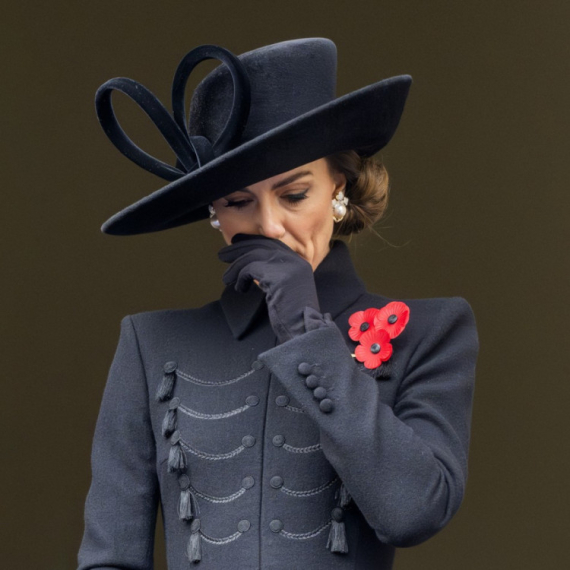

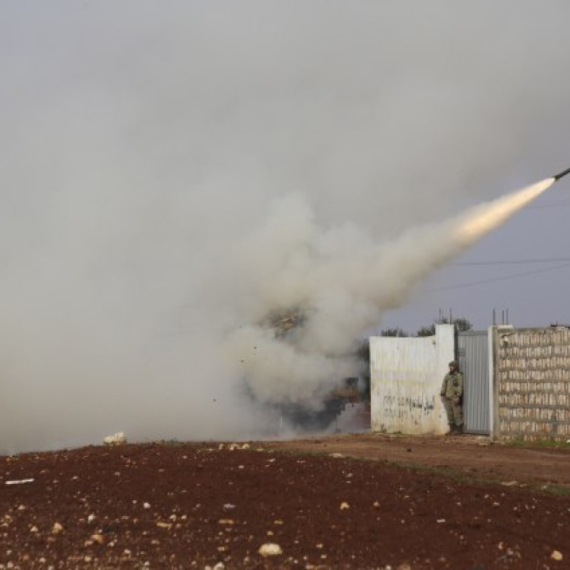
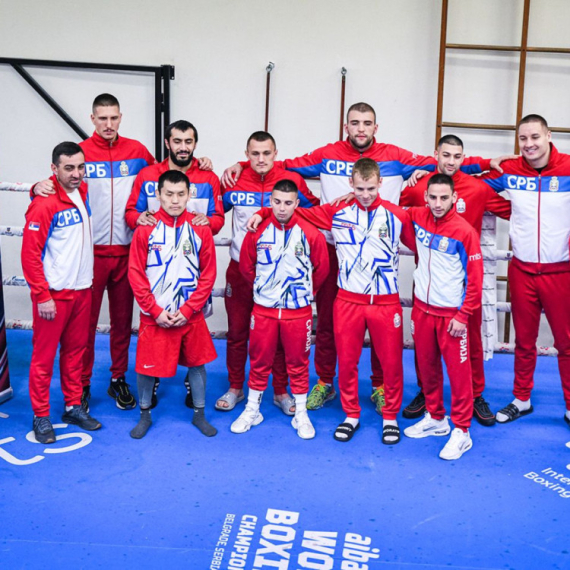

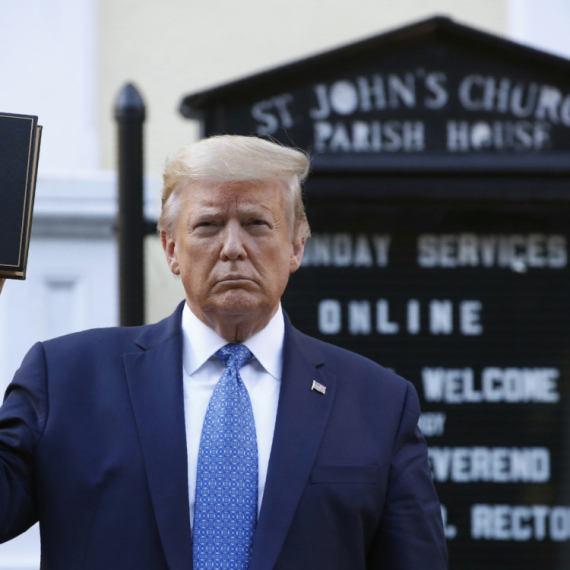






















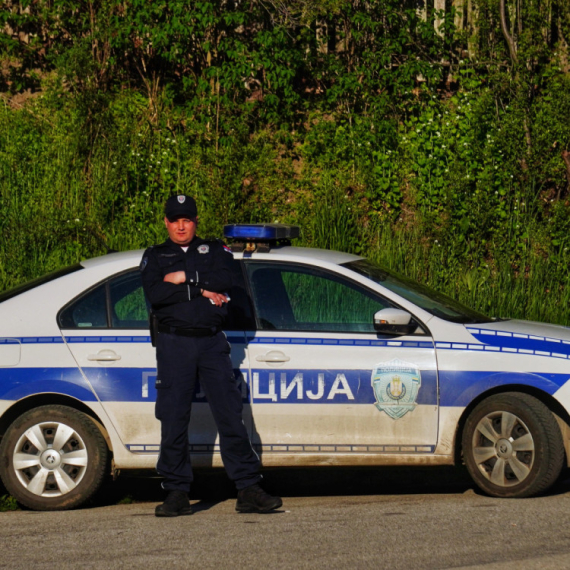
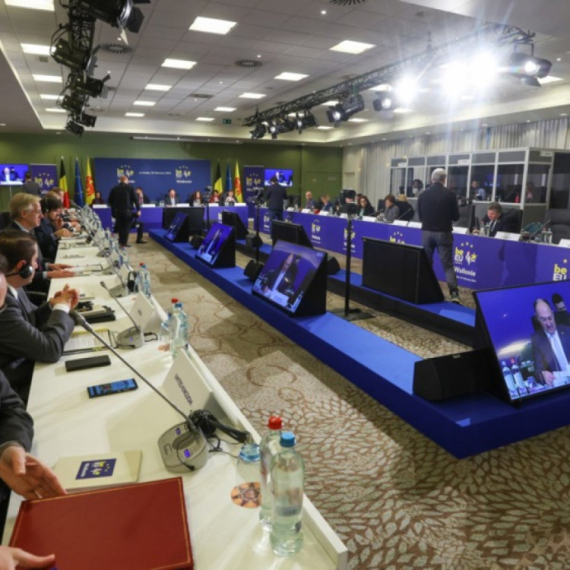
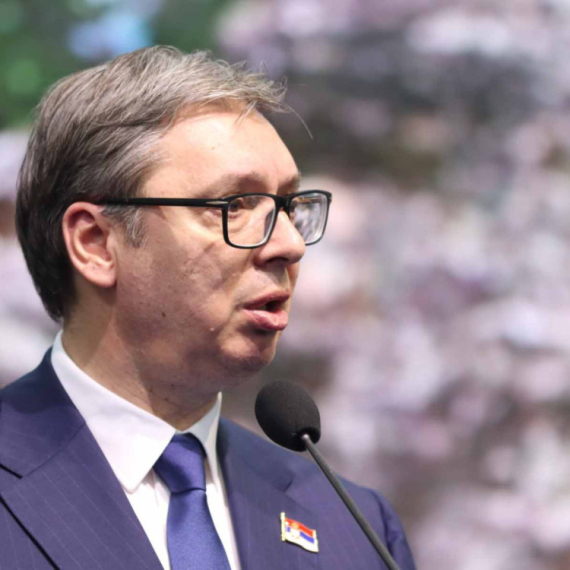
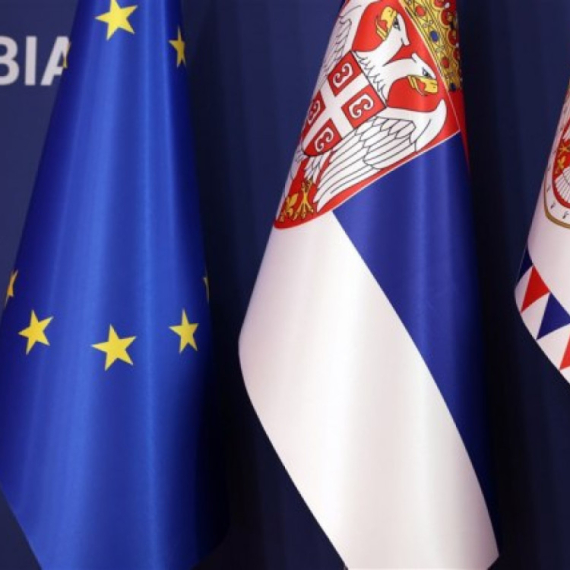


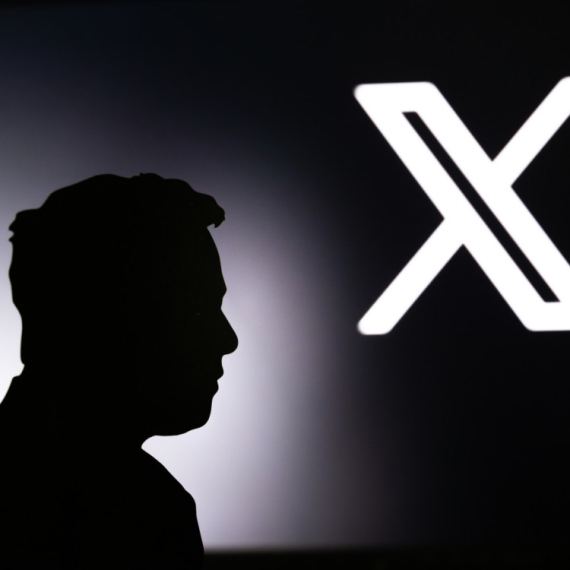




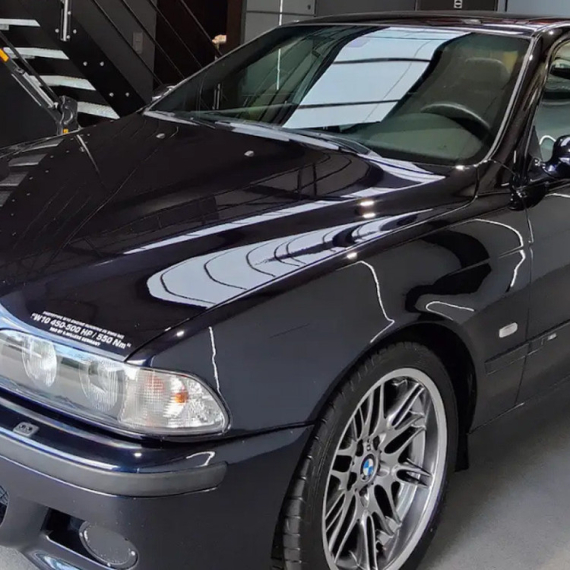
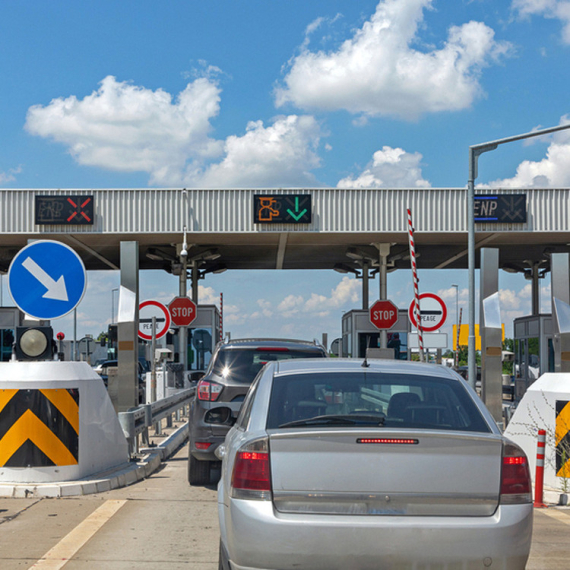






Komentari 0